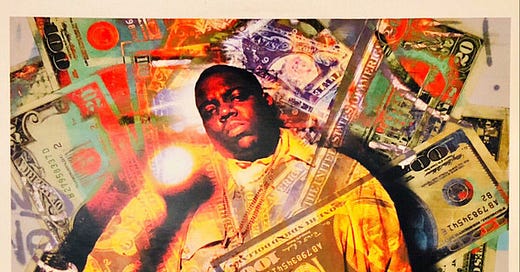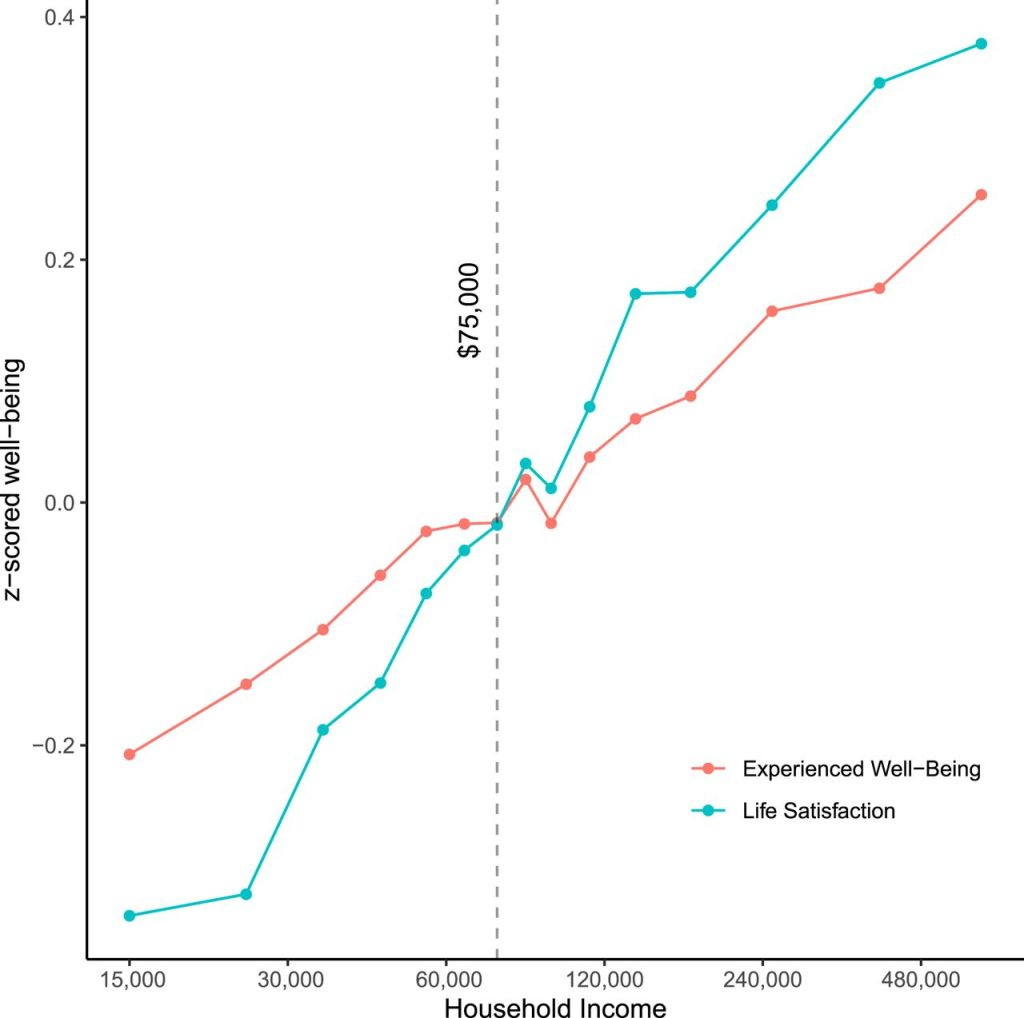The Relationship Between Money and Happiness
My happy place costs around $20, excluding tax. A few cold beers on a beach with family or friends is enough to make me feel satisfied in life. I suppose there are finer beaches than along the Detroit river, which is closest to me. But I’ve drank beers on beaches in other states and other countries and what mattered most were the people who kept me company.
Is it fair to say money is a contributing factor to my happiness? It pays for the beer and allows for time off to go to the beach. Yet, what truly makes me happy is the presence of people I love.
Perhaps, we can’t make a clear assessment on one specific experience. As much as it makes me happy, I don’t want to drink beer on the beach every day of my life. I have a wife, I have children, I have a home, I have many other goals and dreams, all of which money provides for, to the tune of much more than $20.
Maybe the money-happiness relationship then should be evaluated over an entire lifetime. The French philosopher Michel de Montaigne, who some call the original blogger, wrote in one chapter of his Essays that “men are not to judge of our happiness till after death.” What he meant was that conditions were always subject to change. You may have lived a happy life up to this point, but that could all change tomorrow. So, it makes sense to wait until someone dies first. With that in mind, Montaigne went as far to wonder if perhaps our judgment about whether a person has been happy has more to do with how that person dies.
Ingvar Kamprad, the founder of IKEA, died in his sleep. His derived happiness from his work, of which wealth was essentially a byproduct to his ambitions. Take it from the self-made billionaire who reportedly drove a Volvo and insisted on writing on both sides of a piece of paper:
“Happiness is not reaching your goal. Happiness is being on the way.”
So, can money buy happiness?
I believe the framing is wrong. The better question is: how important is the pursuit and accumulation of money to living a happy life?
Fortunately, it is a question that has intrigued researchers for a long time. Our perceptions are shaped by fables and love songs about money’s impotence when it comes to happiness. The truth is not as simple as that. Here is what science says on the relationship between money and happiness.
Well-being rises with income.
Leave it to the nerds at Wharton to prove the Notorious BIG wrong:
As people earn more money, their sense of well-being increases. That’s the conclusion of a study from the University of Pennsylvania’s Wharton School published in Proceedings of the National Academy of Sciences.
This contradicts the well-known 2010 study from Daniel Kahneman and Angus Deaton that suggested our sense of well-being essentially plateaus after an income of $75,000 a year.
Instead of evaluating happiness in a broad reflective way like Montaigne, the Wharton study remarkably collected 1.7 million data points from more than 33,000 participants on how they felt day-to-day and how satisfied they were in life overall. It studied both experienced (emotional, in-the-moment happiness) and evaluative (overall life satisfaction) well-being in relation to income. Their findings showed all forms of well-being continued to rise with income, indicating people tend to feel happier the more money they make.
The reason high-earners are happier is because they feel in more control over life and better protected from hardships. Put another way, money helps create the conditions for being happy.
Still, the study says money is far from the primary factor when it comes to happiness.
As the study’s author and lead researcher Matthew Killingsworth said in a university press release:
“Although money might be good for happiness, I found that people who equated money and success were less happy than those who didn’t. I also found that people who earned more money worked longer hours and felt more pressed for time…
If anything, people probably overemphasize money when they think about how well their life is going.”
Relationships are the biggest source of happiness.
Okay, money is important but not the secret to happiness. How could we learn more?
How about we pick out 268 Harvard sophomores. Then follow them, their surviving progeny and some other participants for 80 years while tracking their physical and mental health along the way. What can that reveal about happiness?
This: “Close relationships, more than money or fame, are what keep people happy throughout their lives.”
That fact is evidenced around the world. In the Ipsos’ Global Happiness Survey 2020, more than half of respondents said their greatest happiness came from their health and physical well-being, which is understandable considering the pandemic. But the following two cited sources of greatest happiness were their relationship with their partner or spouse, with an equal percentage saying it came from their children.
Joy derived from relationships spans all income levels, too.
Consider the findings in a study from the United Kingdom’s National Foundation for Educational Research that children living in poverty were as happy as classmates from wealthier homes. Their sense of well-being was less influenced by wealth than close relations with their parents and friends.
This explains why many economically disadvantage countries report higher than expected levels of happiness. These are cultures that emphasize nurturing relationships over your own self.
Quality time with loved ones may be the truest definition of being rich.
People with jobs that provide meaning are happier, regardless of salary.
Another thing to consider is how our work and earnings relate to happiness. It turns out our attitude that other things in life are more important than money is also reflected in the workplace.
The majority of workers, regardless of age and income, said meaning was the biggest contributor to workplace happiness in a CNBC/SurveyMonkey Workplace Happiness poll.
“Following your passion” may not be the best career advice. But “find a career that makes you feel passionate” may be.
Money buys happiness, depending on how you spend it.
Look around you right now. If you’re at home, you will likely find a host of items that at one time made you happy but now mean nothing to you: that Peloton collecting dust in the corner, that collection of Seinfeld bobbleheads, or even the car sitting in your driveway.
The fleeting happiness from buying things is a feature of the hedonic treadmill.
The answer isn’t to simply not spend money. What researchers determined in a study published in the Journal of Consumer Psychology is that people should be mindful of how they spend money. People are happier when spending money on experiences instead of things. We feel a deeper and more lasting connection to purchased experiences (ex., going to a concert, traveling, visiting an art museum, etc.) than material purchases.
Experiences make a home in our memories. We anticipate them, which is in itself a source of happiness. Plus, experiences are often shared with others, bringing us back to the significance of social connections.
That’s not all the study found.
Possibly the most direct way money can buy happiness is to spend it on others – donate to charity, take a friend out to dinner, buy someone a gift. In congruence with our need for social connections, the act of giving was highly associated with higher levels of happiness.
When we do something for someone else, we give a gift to ourselves. It explains why many retirees – who generally have more wealth and more time – choose to volunteer. In a Merrill Lynch/Age Wave study on giving in retirement, retirees were three times more likely to say “helping people in need” brings them greater happiness versus “spending money on themselves.”
Essentially, it is both true and untrue to say money can buy happiness. Money, when used appropriately, creates opportunities to build a happier life. However, money is not the most important contributor to a happy life.
If all the hustling and life hacking and goal crushing isn’t providing you greater access to real sources of happiness, then you may be overvaluing money in your life and should really think about what you’re missing. It just might help to do it over a few beers on a beach with friends.





